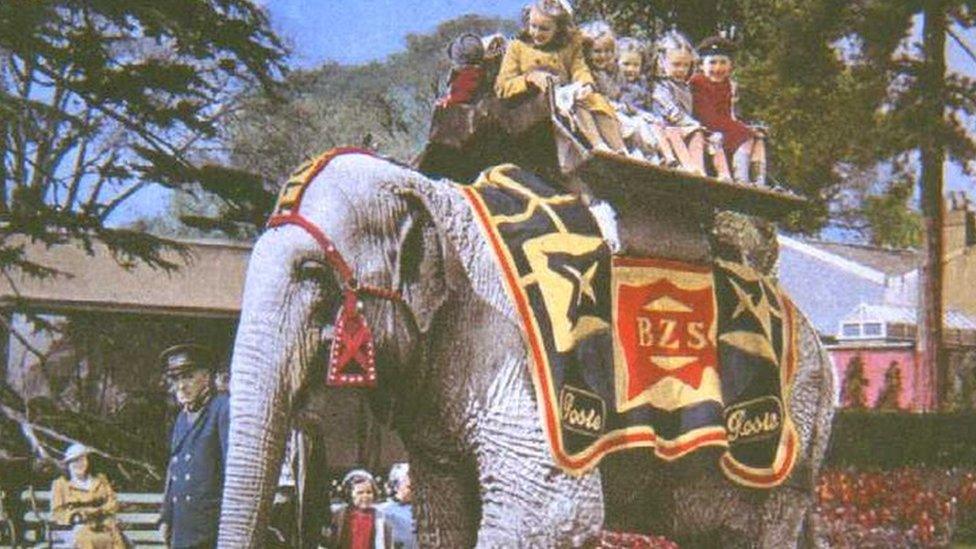Bristol Zoo Project: Threatened birds successfully hatch
- Published
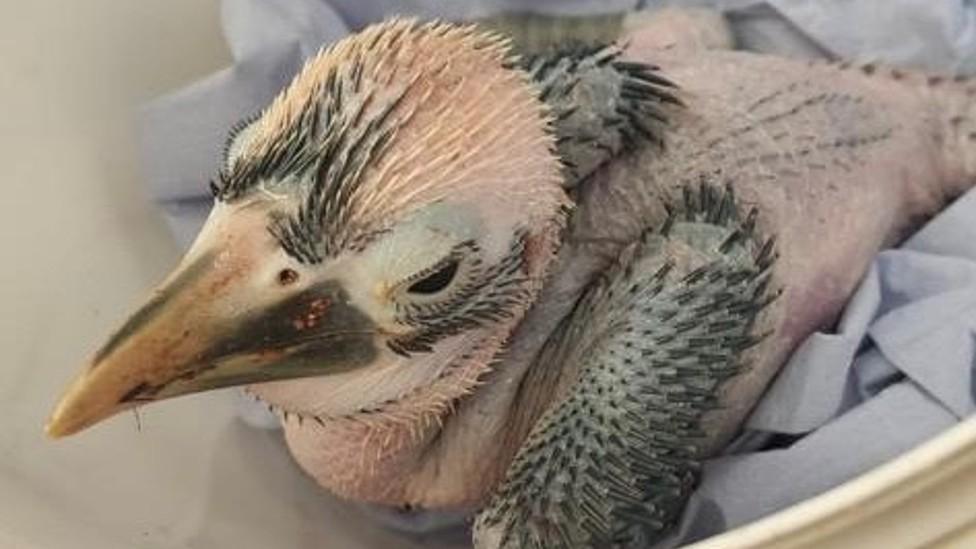
A Visayan tarictic hornbill chick has hatched at Bristol Zoo Project
Two of the world's most threatened species of bird have been successfully bred at a zoo.
Bristol Zoo Project has welcomed a Socorro dove, which are extinct in the wild, and a male Visayan tarictic hornbill.
Hatched in July, it is the first time the endangered hornbills have been bred at the site.
The zoo's Trevor Franks said they were proud to "play a key role in conservation breeding programmes".
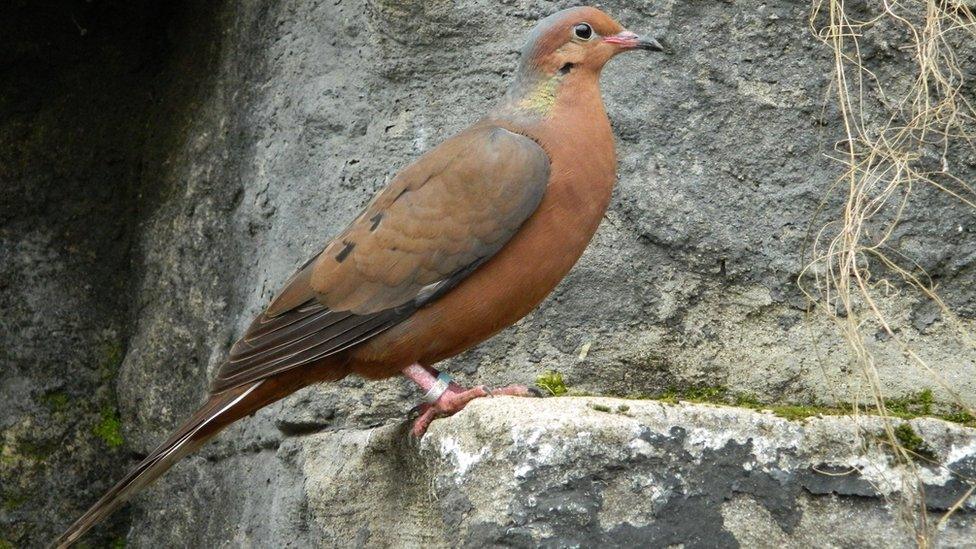
Socorro doves were last sighted in the wild in 1972
Mr Franks, curator of birds at the zoo, said it was "fantastic" news and that breeding Visayan tarictic hornbills at the site for the first time was a "major achievement".
The species is native to the Visayas archipelago in the Philippines and the new chick is expected to fledge over the coming weeks.
The gender of the Socorro dove chick, a bird once native to Socorro Island off the west coast of Mexico and last sighted in the wild in 1972, is yet to be determined and is the first offspring for the zoo's pair of doves.
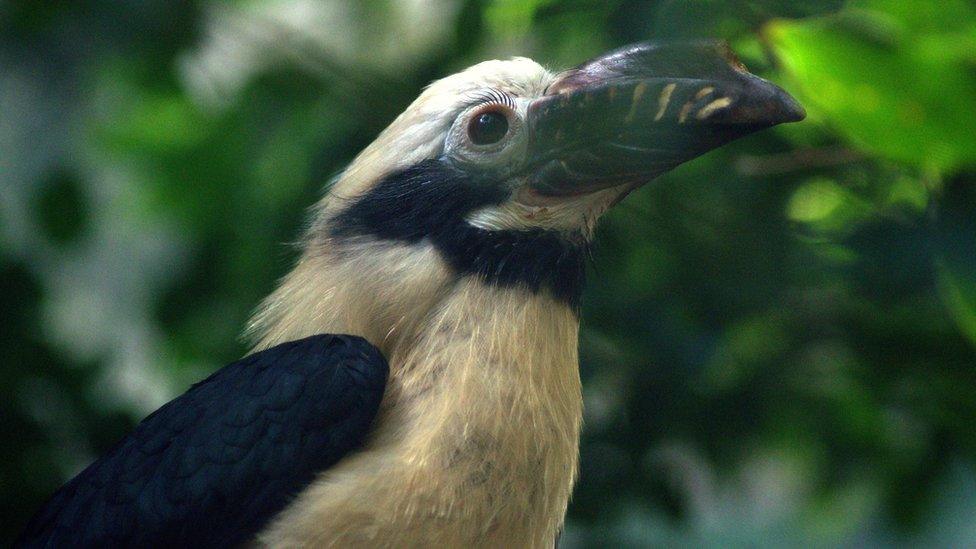
Male Visayan tarictic hornbills have distinctive white and black coloured plumage, while females are mostly black
The two species were moved to the site, formerly known as the Wild Place Project, earlier this year after the closure of the Bristol Zoo Gardens site in Clifton in September 2022.
Owned and operated by the Bristol Zoological Society, the new site, near junction 17 of the M5, is set to undergo construction work, adding new spaces for animals, visitors, play areas and a conservation campus for students, vets, and the breeding of threatened animals.
Living inside the site's walled garden aviaries, visitors will soon be able to see the fledglings as they become more independent.
The society said about 80% of the animals at the site will be linked to conservation work.
Mr Franks said: "We hope to breed many more threatened bird species from the individuals we brought across from our Clifton site."

Follow BBC West on Facebook, external, Twitter, external and Instagram, external. Send your story ideas to: bristol@bbc.co.uk , external
- Published20 June 2023
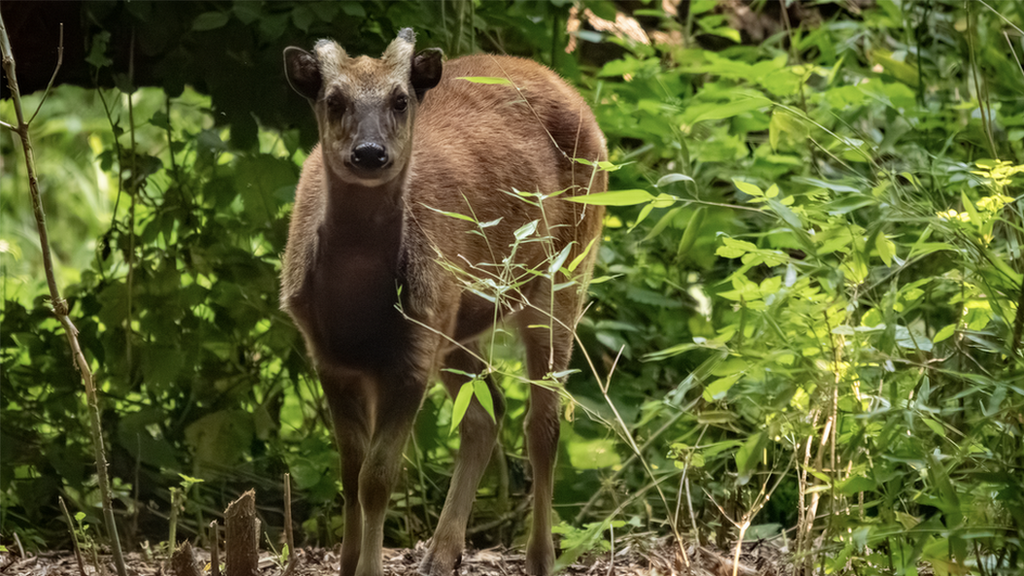
- Published22 April 2023
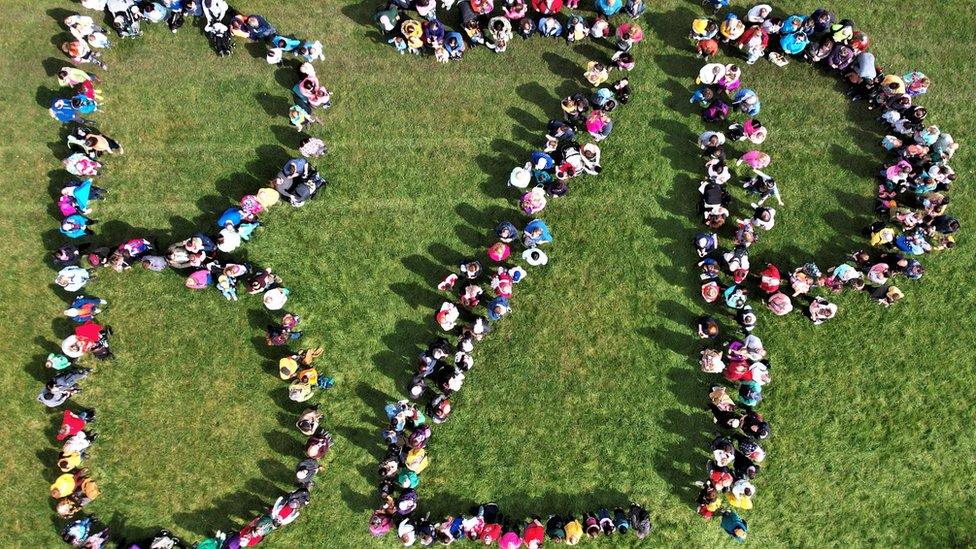
- Published3 September 2022
